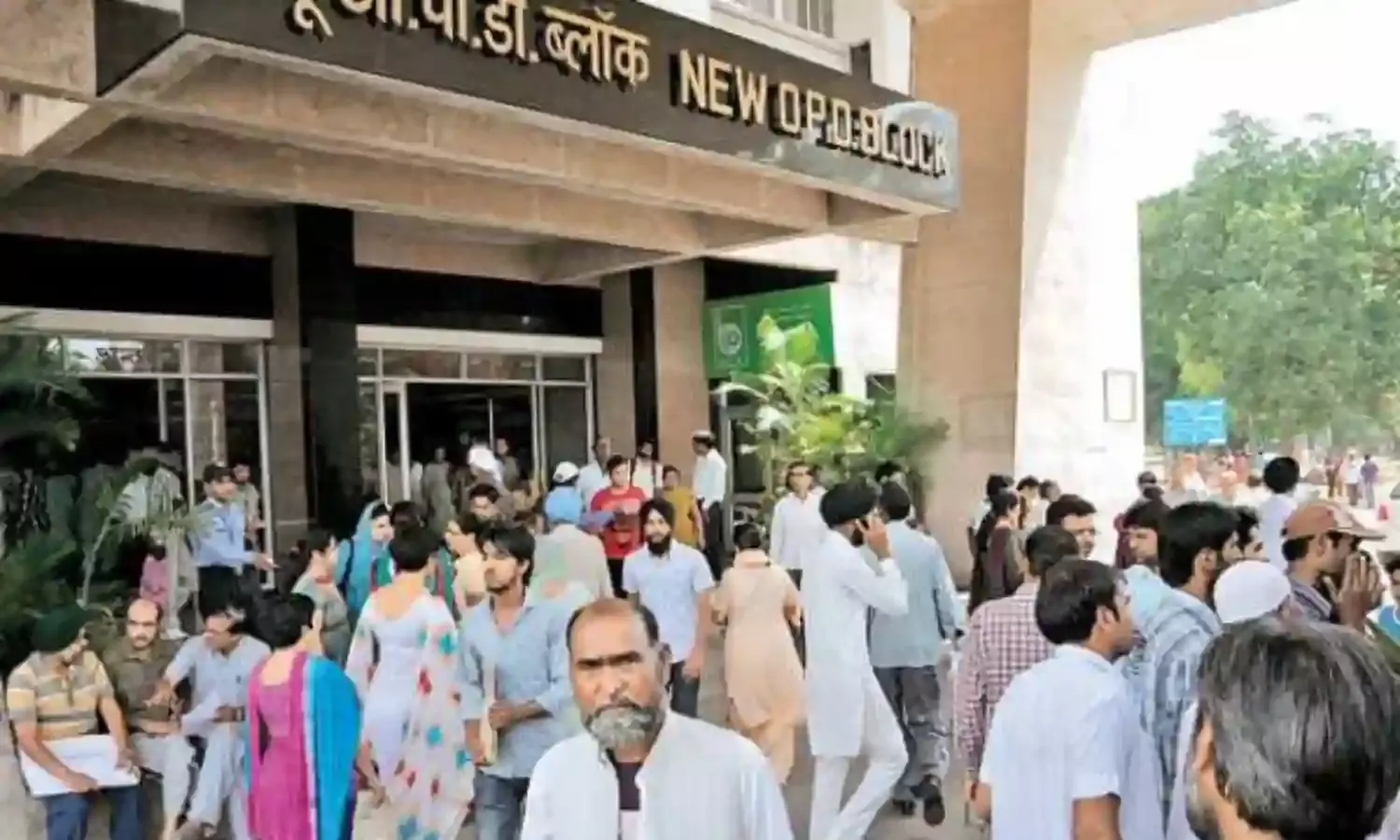India’s First Knee School Promotes Knee Health over Expensive Medical Care
Experts say most knee osteoarthritis can be cured through self-management alone

In the present era where lifestyle diseases have become very common, one often hears about people having problems with their knees. Also common is the practice, mainly among several private orthopaedic experts, of causing a scare among the patients and pushing them towards procedures like knee replacements.
It is well known that such procedures are expensive and there is obviously a lot of money to be made at the cost of patients who are unaware of their condition and do not know whether such expensive interventions are actually required.
Medical experts promoting ethical healthcare are of the view that in the majority of cases where the problem is initial or moderate in nature, such expensive interventions are not required at all. They say patients can be cured through self management alone.
This is being demonstrated in a unique initiative launched last month at the Post Graduate Institute of Medical Education and Research, one of India’s premier health institutions, in Chandigarh. A first of its kind ‘Knee School’ has been set up for patients suffering from knee osteoarthritis (KOA) in the outpatient ward of the Department of Physical Medicine and Rehabilitation, where patients are recruited in groups and their ailment addressed by experts.
Experts at PGIMER say that KOA is a common cause of disability for more than half of people older than 50. They need relief from symptoms and an improvement in quality of life by attaining independence in the activities of daily living. They desire easy access to low-cost and effective treatment that includes explanation, counselling, doctor-patient interaction and guidance for self care.
Experts underline that patients are usually not keen for surgery or the intra-articular injections administered for inflammatory joint conditions. Given proper guidance and supervision, most are willing to practise self-management. While many treatment guidelines have been prepared for use in other countries, they are lacking in India.
The rationale behind the Knee School project is that early-to-moderate KOA can be managed through non-pharmacological interventions or NPIs such as weight reduction exercises, physiotherapy, meditation, yoga, weekly telephonic compliance monitoring and so on.
Dr Amarjeet Singh, an expert at PGIMER told this reporter, “In almost 80% of cases where the problem is in its initial stage or moderate in nature, it can be controlled through lifestyle changes.”
“The problem in the Indian setup is that doctors do not have sufficient time to interact with patients, leave alone their family members. Because of the overcrowded OPDs, experts cannot explain the lifestyle aspects to the patients. After examination, investigations and prescription they refer them to physiotherapists for advice on exercises. But the patients are unable to understand the exercises within the two to three minutes allocated to them,” Dr Singh told The Citizen.
Medical experts point out that lately there is a trend of “secularisation” of medical care. Globally, new concepts have emerged with regard to doctor-patient interaction like patient and family-centred care, social prescription, information therapy, etc. With the focus shifting towards active collaboration and shared decision-making between patients, families and providers of medical care, doctors are freer to talk about lifestyle issues with patients.
Physicians must talk to patients for better outcomes. They need to understand the patient’s underlying concerns, their cultural background and family setting, and much more. In the Indian scenario there is an immense need for a patient-centred approach.
The Knee School initiative at PGIMER has been sanctioned by the central government’s Department of Science and Technology and is being implemented under the supervision of Professor MS Dhillon, Dr Amarjeet Singh, Dr Shankar Prinja and Dr Meenakshi Sharma who are experts in the field of orthopaedics, health economics, public health and community medicine.
The initiative is based on recommendations made by Dr Meenakshi Sharma in her PhD thesis, where her study of such treatments showed a significant reduction in scores of stiffness, physical dysfunction and pain domains in patients.
Experts say the model revolves around patient empowerment through training in self care. The focus is on giving prime importance to the patient while using the concepts of patient and family centred care and the “social prescription” approach.
Thrice a week, groups of patients undertake hour-long supervised exercise sessions. A reminder to the enrolled patients is conveyed through social media group. The session begins with a 10 minute warm-up followed by specific exercises, meditation, yoga and dietary counseling.
“Since it is a group session the patients learn a lot from each other. Even we have been gaining a lot by interacting with the patients and their family members. We target the family members accompanying the patients putting the onus on them to ensure that the patient undertakes what is required for change in his or her lifestyle,” said Dr Amarjeet Singh.
After initial training that aimed to generate enthusiasm among patients, a strategy has been evolved to select group leaders who are asked to lead the group for repetition of the exercises. Family members of the patients are also actively involved. Patients who report relief in their symptoms are asked to share their experiences to encourage and train new patients. Return demonstrations of exercises by patients on each visit are duly conducted and requisite corrections made by senior physiotherapists.
In all 14 sessions are planned for each patient, once a week for the first month and fortnightly for the next five. Performance-based tests, muscle testing and other outcome variables are measured for all patients enrolled in the Knee School. No money or fee is charged from the patients enrolled. Patient education material through audiovisual aids, YouTube links, brochures and booklets are provided for free. At present there are 60 patients enrolled in the initiative.
According to a PGIMER spokesperson, “The Knee School is a pilot test for patient centred care in OPDs. After the successful demonstration at PGIMER, replication of this approach will be attempted across tertiary care hospitals in India.”



